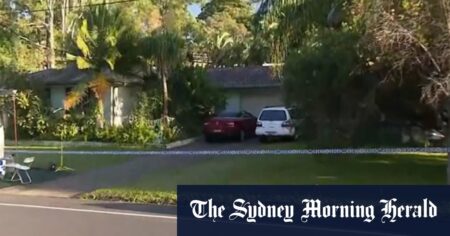The Victorian Centre for Excellence in Child and Family Welfare states that 41 per cent of children in foster care have a disability.
Foster Care Association of Victoria chief executive Samantha Hauge said the organisation had asked the Department of Families Fairness and Housing why the downgrading of support had occurred to children living with carers across regions in Victoria, but had not yet been provided with answers.
“They suggested there has been no policy change, and when pushed they agreed to look further into it and get back to us,” she said.
Experiencing a steep reduction in financial support on top of cost-of-living pressures could mean some carers can no longer cover all the associated costs.
Funding cuts to children’s support as big as those being reported to the association across the state “would dramatically impact on the stability of the placement, and [you would] query whether that particular carer could keep providing the level of care that that child needs”.
“It’s really significant; it’s massive,” Hauge said.
Loading
There was always a shortfall in Victoria between the need for foster carers and the number available, Hauge said.
She said she had been hearing that some established carers who would otherwise take on sibling groups were “downsizing [their care load] because they can’t afford the multiple children in their care”.
The alternatives to foster care, for children whose carers were forced out by financial difficulties, could include placing more children in residential care and other emergency placements.
Victoria had already lost 1300 foster care households in the past four years, Hauge said. She said that figure was huge and made the state an outlier nationally. The state is losing carer households at more than double the rate of the sector’s recruitment capacity.
Carers managed by Berry Street Child and Family Services were warned in its winter newsletter, seen by this masthead, that the Victorian government was reviewing allowances.
“Due to government budget constraints, all carer reimbursements are currently undergoing review for foster care, kinship care and permanent care,” said the newsletter.
It advised carers to have conversations with their case managers and said “we recognise that a possible reduction in your reimbursements may cause additional financial strain”. Berry Street has been contacted for comment.
In March, the Lighthouse Foundation for Youth reported that Victoria’s foster care system was in crisis because the number of children and young people needing out-of-home care was rising sharply due to factors including family violence, trauma and abuse yet places are lacking.
“Since 2018, the number of children requiring out-of-home care has surged by 14 per cent,” it noted. “With fewer people becoming foster carers, the system is under immense strain, leading to an increase in young people requiring residential care.”
A spokesperson for the Department of Families, Fairness and Housing said information was being sought, and a comment would be available on Tuesday.
Start the day with a summary of the day’s most important and interesting stories, analysis and insights. Sign up for our Morning Edition newsletter.
Read the full article here














